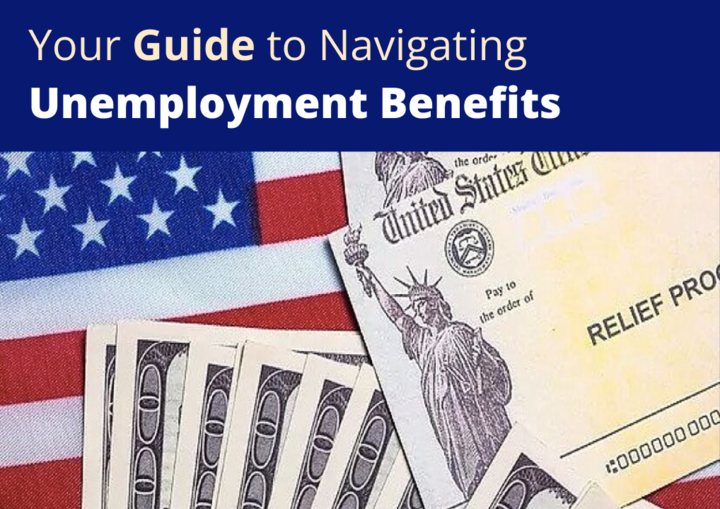Auto warranties serve as a crucial safety net for vehicle owners, providing a layer of financial protection against unexpected repair costs. Typically, there are two main types of warranties: manufacturer warranties and extended warranties. Manufacturer warranties, often included with the purchase of a new vehicle, cover defects in materials and workmanship for a specified period, usually ranging from three to five years or a certain mileage limit, such as 36,000 to 60,000 miles.
These warranties generally cover major components like the engine, transmission, and electrical systems, but they may exclude wear-and-tear items such as brake pads and tires. Extended warranties, on the other hand, can be purchased separately and may offer coverage beyond the manufacturer’s warranty. These plans can vary significantly in terms of what they cover and for how long.
Some extended warranties may cover only specific components, while others might offer comprehensive coverage similar to that of a new car warranty.
The duration of these warranties can also differ widely, with some lasting up to seven years or more, depending on the provider and the plan selected.
Understanding the nuances of what each type of warranty covers is essential for vehicle owners to make informed decisions about their automotive investments.
Key Takeaways
- Auto warranties cover specific parts and services for a certain period of time, typically 3 to 5 years.
- An auto warranty can provide financial benefits by covering the cost of expensive repairs, especially for newer vehicles.
- Vehicle reliability is crucial in determining if an auto warranty is worth it, as it affects the likelihood of needing repairs.
- Extended warranties are worth considering for older vehicles with high mileage, as they are more prone to breakdowns.
- Comparing the cost of an auto warranty to potential out-of-pocket repairs can help determine the financial savings.
Evaluating the Cost of Repairs: When Does an Auto Warranty Provide Financial Benefits?
Transmission Failure: A Costly Repair
A transmission failure, for instance, can cost anywhere from $1,500 to $4,000 to repair or replace, depending on the make and model of the vehicle. In such scenarios, an auto warranty can provide significant financial relief by covering these high-cost repairs.
Evaluating the Necessity of an Extended Warranty
However, it is essential to evaluate the likelihood of needing such repairs based on the vehicle’s reliability ratings and historical data. For example, brands like Toyota and Honda are known for their reliability and lower repair costs, which may lead some owners to question the necessity of an extended warranty.
The Age and Mileage of a Vehicle: A Critical Factor
Moreover, the age and mileage of a vehicle play a critical role in determining whether an auto warranty is financially beneficial. As vehicles age and accumulate miles, they become more susceptible to mechanical failures. A study by the Automotive Aftermarket Industry Association (AAIA) indicates that vehicles over five years old are more likely to require significant repairs. Therefore, for owners of older vehicles or those approaching the end of their manufacturer warranty, investing in an extended warranty could be a prudent decision to mitigate potential repair expenses.
The Importance of Vehicle Reliability: How to Determine if an Auto Warranty is Worth It
Vehicle reliability is a key factor in assessing whether an auto warranty is worth the investment. Reliability ratings from sources like J.D. Power and Consumer Reports provide valuable insights into how different makes and models perform over time.
For instance, vehicles that consistently receive high reliability scores are less likely to experience major issues, which may lead owners to forgo extended warranties. Conversely, cars with lower reliability ratings may present a compelling case for purchasing additional coverage. Additionally, understanding the specific components that are prone to failure in certain models can help owners make informed decisions about warranty purchases.
For example, some vehicles may have known issues with their electrical systems or engine components that could lead to costly repairs down the line. By researching these common problems and weighing them against the cost of an auto warranty, vehicle owners can better assess whether the peace of mind provided by a warranty justifies its expense.
Considering the Age and Mileage of Your Vehicle: When to Purchase an Extended Warranty
The timing of purchasing an extended warranty is crucial and should be carefully considered based on the age and mileage of the vehicle. Generally, it is advisable to buy an extended warranty while the vehicle is still under its manufacturer warranty. This is because many providers impose restrictions on coverage for older vehicles or those with high mileage.
For instance, if a vehicle has already surpassed 60,000 miles or is more than five years old, it may be challenging to find a comprehensive warranty that offers substantial coverage.
Moreover, purchasing an extended warranty early can often result in lower premiums compared to waiting until the vehicle has aged further.
As vehicles accumulate miles and age, they are perceived as higher risk by warranty providers, leading to increased costs for coverage.
Therefore, proactive vehicle owners should evaluate their options before their manufacturer warranty expires to secure the best possible terms and pricing.
Calculating the Potential Savings: Comparing the Cost of an Auto Warranty to Out-of-Pocket Repairs
When considering an auto warranty, it is essential to conduct a thorough cost-benefit analysis by comparing the cost of the warranty against potential out-of-pocket repair expenses. For example, if an extended warranty costs $1,500 for three years but could save you from a $3,000 engine repair during that time frame, it may seem like a wise investment. However, if your vehicle is relatively trouble-free and you only incur minor repairs totaling $500 over those three years, the warranty may not have been worth it.
To make this calculation more accurate, vehicle owners should consider their driving habits and how often they typically encounter repairs. An individual who drives extensively or frequently takes long trips may be more likely to experience mechanical issues than someone who primarily uses their car for short commutes. Additionally, researching average repair costs for specific makes and models can provide valuable context when evaluating whether an auto warranty will yield financial savings.
Factoring in Peace of Mind: The Non-Financial Benefits of an Auto Warranty
While financial considerations are paramount when evaluating auto warranties, non-financial benefits should not be overlooked. One significant advantage is peace of mind; knowing that you are protected against unexpected repair costs can alleviate stress associated with vehicle ownership. This peace of mind can be particularly valuable for individuals who rely heavily on their vehicles for daily commuting or family transportation.
Furthermore, many auto warranties come with additional perks that enhance their value beyond mere repair coverage. For instance, some plans offer roadside assistance services, rental car reimbursement during repairs, or even trip interruption coverage if your vehicle breaks down while traveling. These added benefits can significantly enhance the overall ownership experience and provide reassurance that you are covered in various situations.
Tips for Negotiating a Better Warranty Deal: How to Maximize the Financial Benefits
Negotiating a better deal on an auto warranty can lead to substantial savings and improved coverage options. One effective strategy is to shop around and compare quotes from multiple providers before making a decision. Different companies may offer varying levels of coverage at different price points; therefore, conducting thorough research can help identify the best value for your needs.
Additionally, being aware of any promotional offers or discounts can further enhance your negotiating power. Some providers may offer reduced rates during specific times of the year or for certain demographics such as military personnel or students. Furthermore, consider negotiating terms such as deductibles or coverage limits; sometimes adjusting these factors can lead to more favorable pricing without sacrificing essential coverage.
When to Skip the Warranty: Situations Where an Auto Warranty May Not Make Financial Sense
While auto warranties can provide valuable protection for many vehicle owners, there are situations where purchasing one may not be financially prudent. For instance, if you own a reliable vehicle with a strong track record of minimal repairs—such as certain models from Toyota or Honda—investing in an extended warranty might not yield significant benefits. In such cases, setting aside funds for potential repairs could be a more cost-effective approach.
Additionally, if you plan to sell or trade in your vehicle within a short timeframe—typically within three years—an extended warranty may not be necessary since most manufacturer warranties will still be in effect during that period. Similarly, if you have sufficient savings set aside specifically for car repairs or if you are comfortable handling minor repairs yourself, opting out of an auto warranty could be a wise financial decision that allows you to allocate your resources elsewhere. In conclusion, understanding auto warranties involves navigating various factors including coverage details, repair costs, vehicle reliability ratings, timing for purchase based on age and mileage, potential savings calculations, non-financial benefits like peace of mind, negotiation strategies for better deals, and recognizing situations where warranties may not be necessary.
By carefully considering these elements, vehicle owners can make informed decisions that align with their financial goals and personal circumstances.
FAQs
What is an auto warranty?
An auto warranty is a contract between the vehicle owner and a warranty provider, typically the manufacturer or a third-party company, that covers the cost of certain repairs or replacements for a specified period of time or mileage.
When does an auto warranty make financial sense?
An auto warranty may make financial sense for individuals who plan to keep their vehicle for an extended period of time and want to protect themselves from unexpected repair costs. It can also be beneficial for those who have a history of expensive vehicle repairs or own a vehicle with a reputation for mechanical issues.
What are the different types of auto warranties?
There are several types of auto warranties, including manufacturer warranties, extended warranties, and certified pre-owned warranties. Manufacturer warranties are typically included with the purchase of a new vehicle and cover specific components for a certain period of time. Extended warranties and certified pre-owned warranties are optional and can be purchased for additional coverage beyond the manufacturer’s warranty.
What factors should be considered when deciding on an auto warranty?
When deciding on an auto warranty, it’s important to consider the length of coverage, the cost of the warranty, the reliability of the vehicle, and the likelihood of needing major repairs. It’s also important to review the terms and conditions of the warranty to understand what is covered and any limitations or exclusions.







